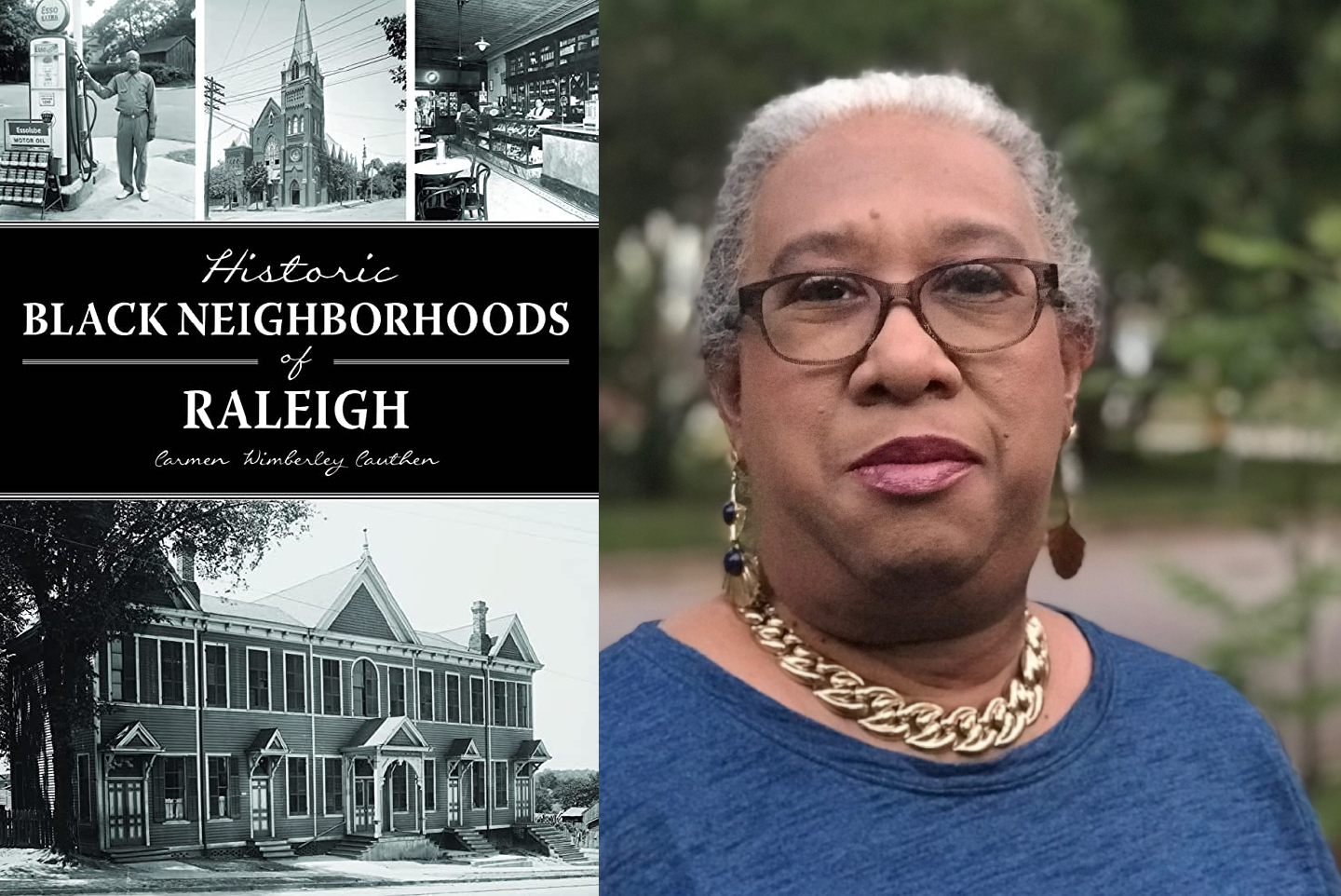Carmen Wimberly Cauthen, a native of Raleigh, was born in 1959 at St. Agnes Hospital on the Campus of St. Augustine’s College. The paternal side of her family has lived in Raleigh since 1935 and her grandfather and father were both pharmacists, owning their own drugstores (Central Drug Store and Community Drug Store). Her mother moved here in 1954 as an educator and taught in the Raleigh Public School System. She was one of the last members of the Raleigh City Board of Education and one of the first members of the merged Wake County Board of Education in 1976.
Ms. Cauthen’s first home was in Washington Terrace, one of the first apartment complexes for African Americans in the area. A graduate of Broughton High School, she attended the Georgia Institute of Technology before transferring to North Carolina State University, where she graduated with a degree in Political Science. After graduating from North Carolina State University, Cauthen became a Journal Clerk for the House of Representatives of the North Carolina General Assembly, retiring after twenty years of public service. Her experience at the NCGA sharpened her research skills and gave her a unique perspective on the impact that history can have on everyday lives.
Ms. Cauthen became concerned with Wake County’s rising property taxes and development as well as with their impact on long-neglected neighborhoods. In 2019, she began working with a local affordable housing advocacy organization. That work became a gateway to researching her first love, Raleigh’s Black history. The starting points for Ms. Cauthen’s research were the interviews with prominent Black citizens contained in Culture Town: Life in Raleigh’s African American Communities, published by the RHDC in 1993 and winner of one of CAP’s first Anthemion Awards in 1994.
The story of Raleigh’s African American communities begins before the Civil War. Towns like Oberlin Village were built by free people of color in the antebellum era. During Reconstruction, the creation of thirteen freedmen’s villages defined the racial boundaries of Raleigh. These neighborhoods demonstrated the determination and resilience of formerly enslaved North Carolinians. After World War II, new suburbs sprang up, telling tales of the growth and the struggles of the Black community under Jim Crow. Many of these communities endure today. Dozens of never published photos and maps illustrate this hidden history. Most importantly, Ms. Cauthen’s book tells the story of a people who—despite slavery—wanted to learn, grow, and be treated as any other citizens.
The Board of Directors of Capital Area Preservation, Inc. is pleased to present a 2023 Anthemion Award to Carmen Wimberly Cauthen for the book Historic Black Neighborhoods of Raleigh.

